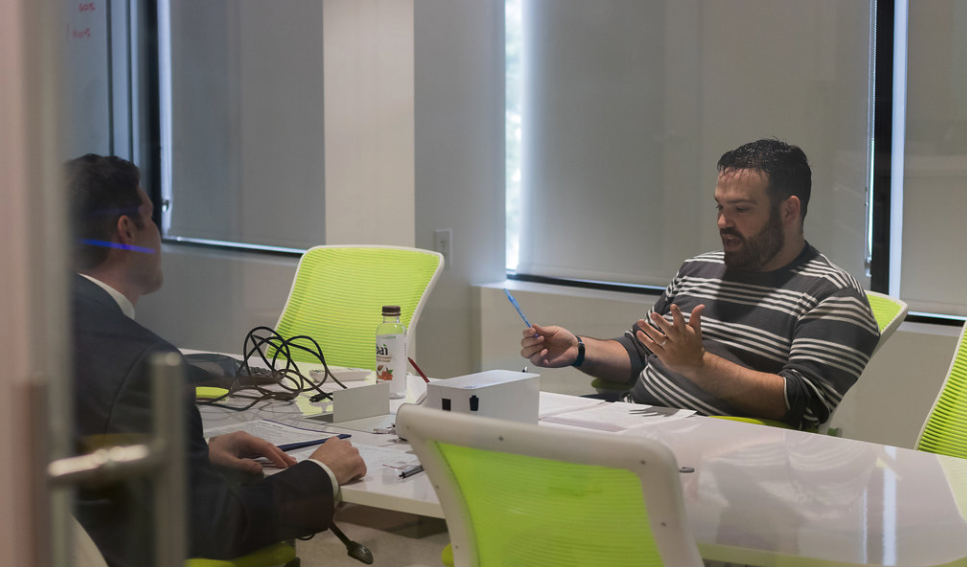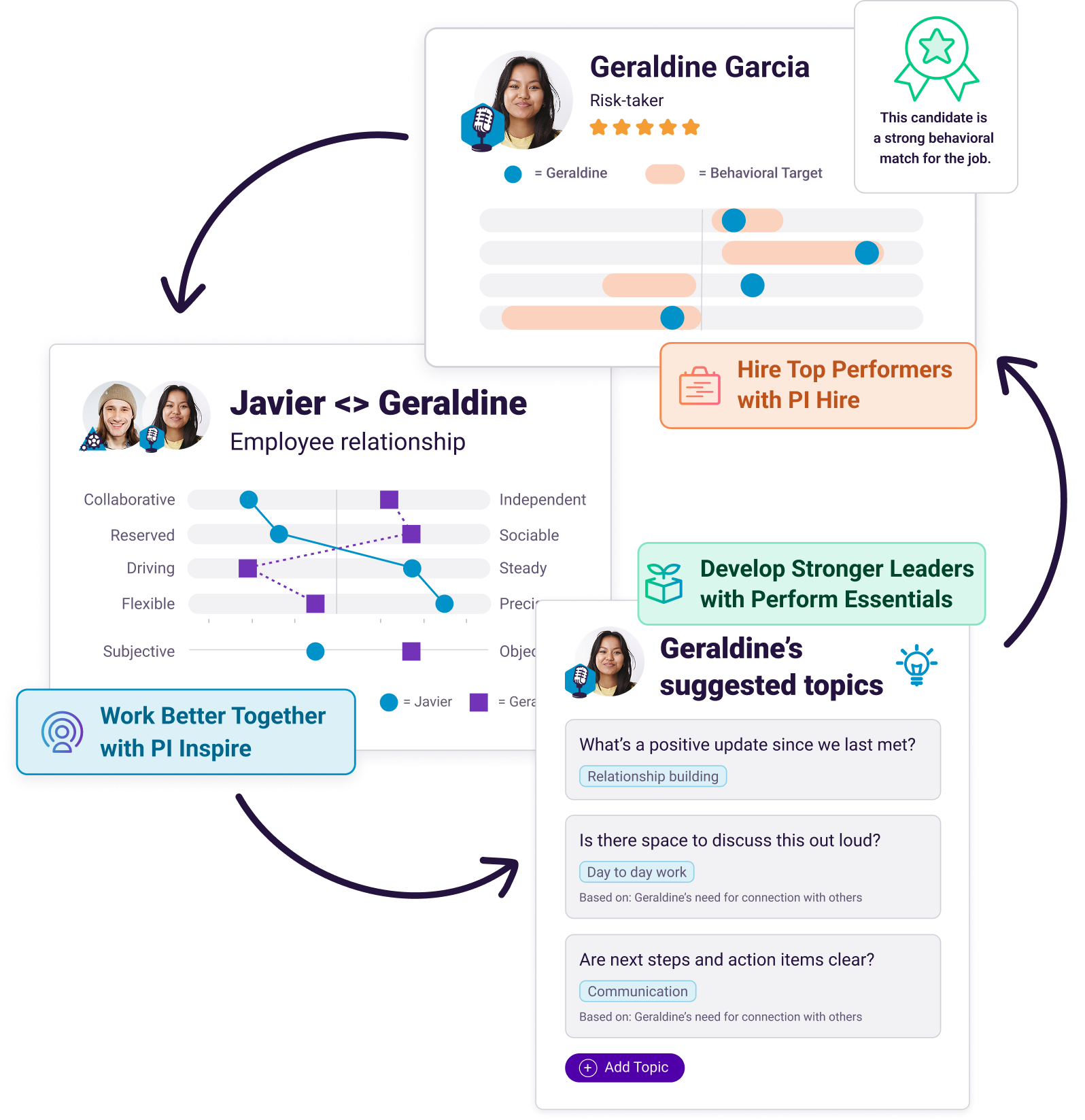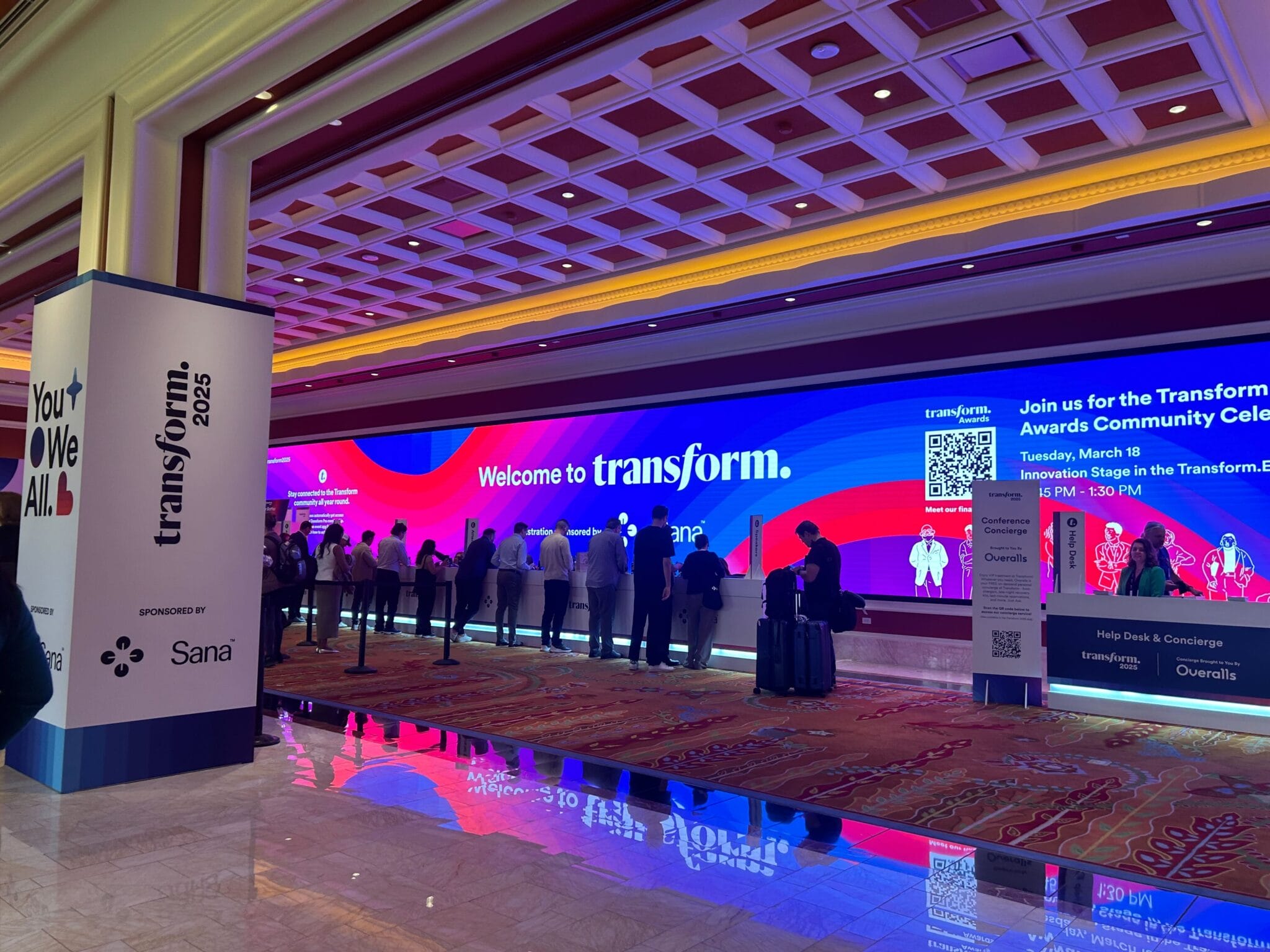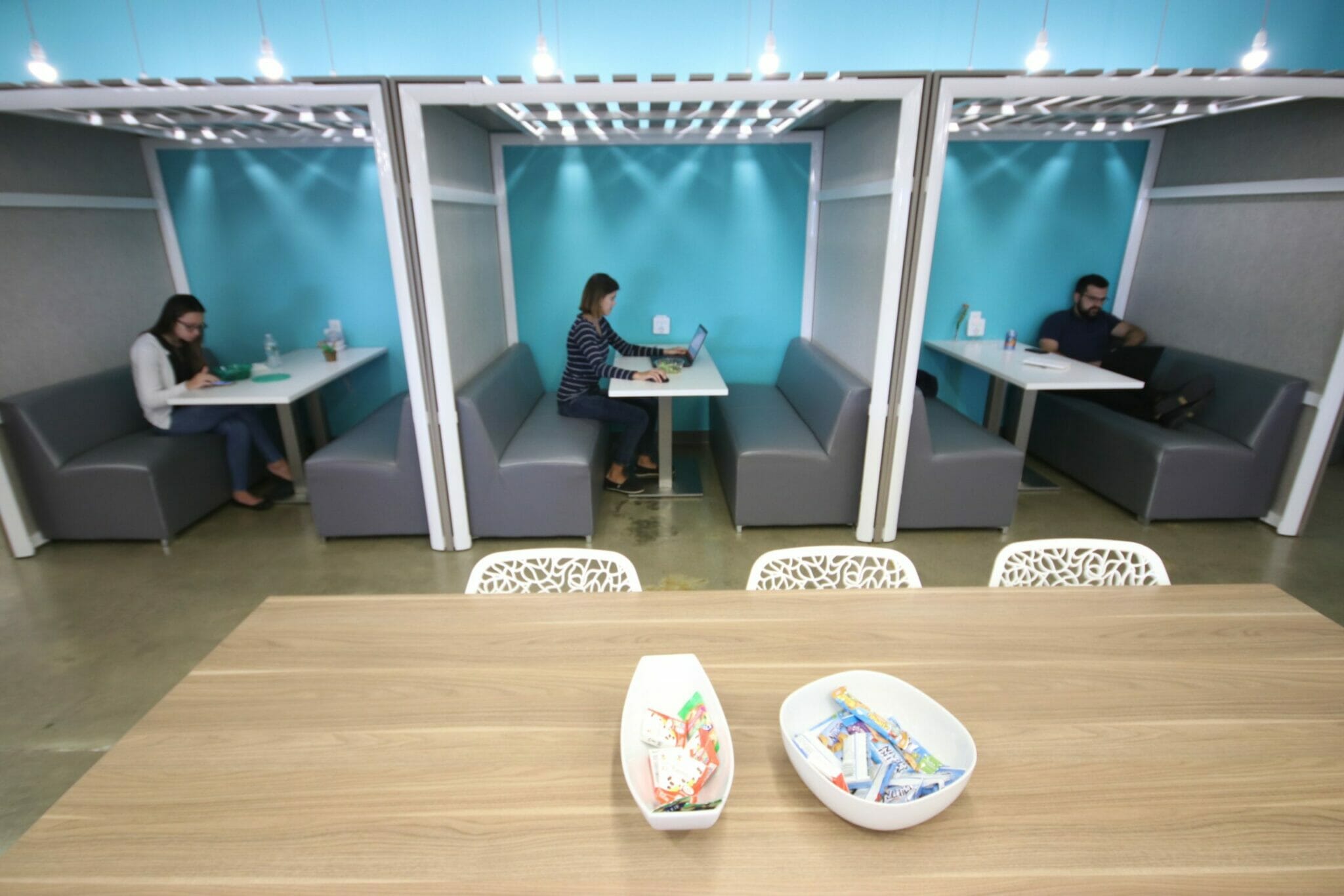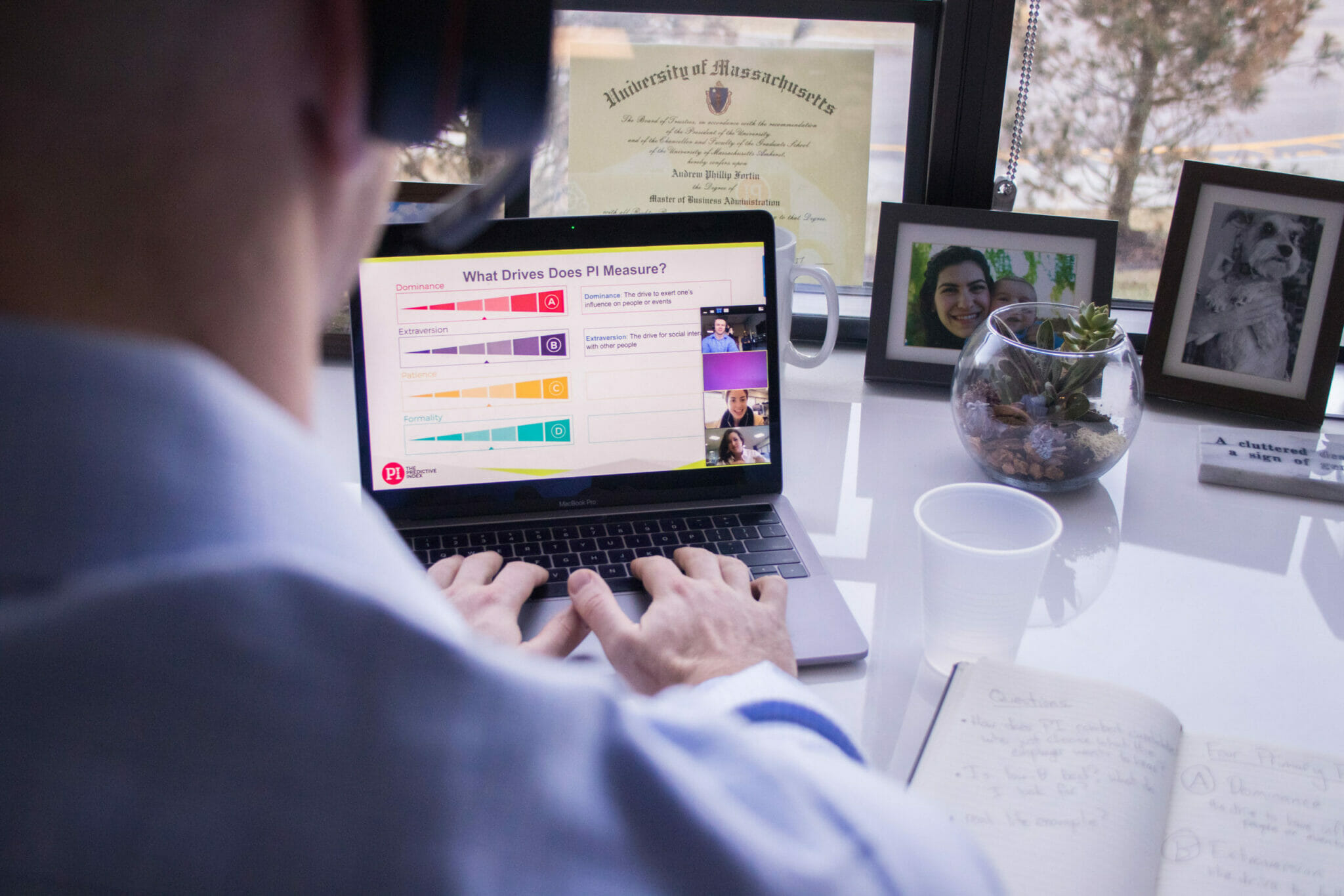What sets a candidate apart during the hiring process? That answer varies based on the role, as well as the skills and behaviors that lend to success in it – but one consistently reliable gauge is a person’s ability to think critically.
Critical thinking is the ability to analyze information objectively, identify biases, recognize assumptions, and construct logical and reasonable arguments. It’s an active process; instead of letting information wash over you passively, you engage with the material and ask questions to draw your own conclusions, problem solve, and make effective decisions.
Critical thinking is essential for anyone in a managerial or leadership role, as it empowers them to move beyond reactive responses and make well-informed, proactive decisions that create positive outcomes for both their team and the organization as a whole. It’s a foundational skill for navigating complexity, driving innovation, and achieving reliable, sustainable success.
Naturally, evaluating the critical thinking skills of candidates for leadership roles is crucial to hiring the right person the first time. In this post, we’ll outline some effective critical thinking interview questions and how to evaluate the responses properly. Let’s dive in.
The risk of not hiring correctly
It’s essential to assess a candidate’s critical thinking during the hiring phase, as it is incredibly detrimental to hire incorrectly for a position that absolutely requires these skills. A high-level employee, such as a manager or leader, can cost approximately 400% of their annual salary to replace.
There are direct costs to consider, such as recruiting fees and the time and productivity costs of onboarding, but also hidden or indirect costs, such as decreased employee morale and engagement, which leads to even more turnover, increased workload for remaining team members, delayed projects, and disrupted customer relationships.
These things add up, which is why the risk of not hiring correctly is so high.
Common examples of critical thinking in the workplace
It’s important to keep in mind that critical thinking isn’t an abstract theory; it’s a practical skill that can and should be applied every day to multiple different situations.
Let’s consider some examples of critical thinking in the workplace through the lens of decision-making, problem-solving, and analyzing data.
Decision-making
First, decision-making. When any decision needs to be made, critical thinking will aid the process and result in better, more effective decisions.
For example, after evaluating vendors based on cost, quality, and reliability, a project manager must select the most suitable one for the critical project.
Problem-solving
Problem-solving is also aided by critical thinking. An employee’s problem-solving abilities are aided by an ability to think through problems critically.
For example, a customer service representative might need to problem solve using their critical thinking abilities to diagnose the root cause of a customer’s problem and an equitable solution.
Analyzing data
Critical thinking skills are also used in analyzing data and using that data to reach strong, well-thought-out conclusions.
For example, by thinking critically when examining economic trends alongside company performance metrics, a finance manager can develop accurate financial projections that account for multiple variables.
Critical thinking interview questions
1: “Imagine a situation where your team is facing a significant setback on a project. The initial plan isn’t working, and morale is low. What steps would you take to understand what went wrong and develop a new approach moving forward?”
Question type: situational
2: “Tell me about a time you dealt with a challenging coworker. How did you resolve the situation?”
Question type: behavioral
3: “Customer satisfaction scores have dropped, you don’t know why, and you only have a limited time to determine the root cause. What steps would you take to investigate the issue and develop potential solutions?”
Question type: scenario-based
4: How would you handle a situation where an employee asks for a significant salary raise?
Question type: situational
5: “You’ve been working on a major project for several months, but overnight, the company changes its strategic direction, making your project no longer a priority. Your manager asks you to pivot to a completely different urgent task with a tight deadline. How would you react? How would you manage this change?”
Question type: scenario-based

Evaluating responses
Having strategic critical thinking interview questions will only get you so far if you aren’t adequately and effectively evaluating candidates’ responses.
Use a consistent framework:
To ensure objectivity and fairness, establish clear criteria for evaluating different aspects of critical thinking, such as analysis, evaluation, problem-solving, and communication skills. Assign points based on the depth and quality of the response in each area.
Utilize the STAR method:
- Situation: What’s the context of the situation?
- Task: What were the interviewee’s duties and expectations?
- Action: How did the interviewee fulfill their duties? Did they go above and beyond?
- Result: Did the interviewee’s actions yield positive results? What did they learn?
Evaluate analytical skills and reasoning:
Evaluate each candidate’s analytical skills and reasoning.
Did they break down the scenario into smaller parts? Did they identify key factors, potential causes, or other relevant information?
Can the candidate clearly articulate their thought process? Do they explain the steps they would take and the reasons for those steps? Look for organized, comprehensive, and coherent explanations.
Ask follow-up questions:
Don’t simply accept the first answer. Probe deeper with follow-up questions to challenge their assumptions or explore alternative scenarios.
For example, “What are some potential downsides to your approach?”
Consider self-awareness:
Does the candidate exhibit self-awareness?
In behavioral questions related to challenges they faced in the past, did they demonstrate an understanding of their own strengths and weaknesses in critical thinking situations?
Take notes:
Don’t rely exclusively on your memory. Utilize your framework and take detailed notes on each of the candidates’ responses, particularly on how they employed their critical thinking skills. This will help you make more informed and defensible decisions.
Compare responses to the requirements of the role:
Tie everything back to the needs and requirements of the role you are hiring for.
Which aspects of critical thinking are most essential for success in the specific leadership position you’re hiring for? Weigh those aspects accordingly in your evaluation.
Be mindful of potential red flags:
Watch out for red flag answers.
Do they accept things at face value, or do they seek evidence and ask why? Do they lack curiosity? Do they draw illogical conclusions or overly rely on their opinions? Do they provide simple, black-and-white answers to complex questions? Do they struggle to articulate their reasoning? Is their problem-solving approach reactive or impulsive?
These are all red flags to watch out for.
The Predictive Index can help
With the actionable, objective data provided by PI Hire integrated into your hiring process, you can increase the likelihood of hiring and retaining new hires, decrease the chance of turnover, and harness the power of your entire team to determine the behaviors needed to excel in the role.
Our software rallies everyone around the behavioral traits needed in a candidate through Job Targeting, enabling input from the people who know the role best. Align early in the process to make better data-driven decisions and get to the root of what makes for a star performer for each unique role.
